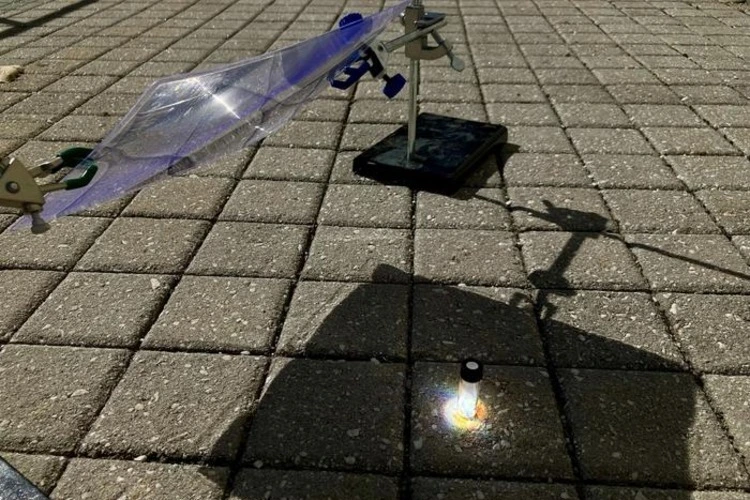
Black plastics have traditionally been far more difficult to recycle than others, but new study uses power of sunlight to change that
By
In a recent study, scientists have developed a new strategy to help recycle black plastics – a type of plastic which primarily ends up in landfills due to its colour. Often, the black coating on these plastics means that the infrared sensors in recycling plants are unable to detect its presence, so it is either incinerated or deemed as ‘residue’ to be put into landfill.
Methods to tackle this problem within the recycling plant – such as with new detectors – would be extremely costly in both time and money, but an innovation from new research has provided a simple, but hugely effective solution to this dilemma: using sunlight or white LEDs alongside an additive found in these plastics to convert black and coloured polystyrene waste into reusable starting materials.
Scientists have already known that light can help break down plastics into recyclable materials. But this process requires what’s known as a ‘helper compound’ – something added to the mix which converts light into the heat needed to break apart strong polymer bonds in plastic.
Enjoying this read? Check out other scientific discoveries….
This ‘helper compound’ can be difficult to identify, since many are not easily incorporated into the recycled products and can create even more waste. But new research has found a particularly useful compound for the process, which is already found in black polystyrene waste: an additive known as carbon black.
In the research, a mixture of polystyrene and carbon black was ground into a fine powder, and placed into a vial. Scientists then placed this under high-intensity white LED lights for 30 minutes. During the experiment, the carbon black converted the LED light into heat, which in turn broke down the plastic’s polymer structure into a series of shorter units – known as monomers – that are easier to recycle.
Sunlight is even more effective at recycling in this way than using LEDs, though – when the study switched to using sun to see how it could break down post-consumer black plastic from food, the quantity of polystyrene converted into recyclable monomers jumped from 53 per cent to 80 per cent.
Eventually, it is hoped that this process will be able to create a closed-loop recycling process for black plastic.




